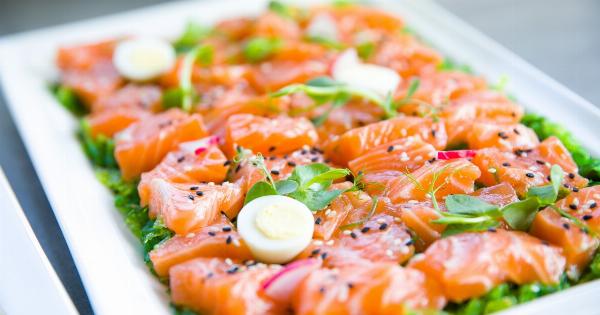As your baby grows, it becomes crucial to ensure they receive the proper nutrition to support their development. The first year of a baby’s life is a critical period for establishing healthy eating habits.
Including nutrient-rich foods in their diet during this time helps promote growth and provides essential vitamins and minerals. In this article, we will discuss 30 nutritious foods to include in your baby’s diet before they turn one, ensuring their optimal health and well-being.
1. Avocado
Avocado is an excellent source of healthy fats and essential nutrients such as vitamin E, vitamin K, potassium, folate, and fiber. It can be introduced to your baby’s diet as early as six months by mashing it or serving it as a puree.
2. Sweet Potatoes
Sweet potatoes are a great source of beta-carotene, which is converted into vitamin A in the body. They also contain fiber and various minerals. You can steam or bake sweet potatoes and mash them for your little one.
3. Blueberries
Blueberries are packed with antioxidants and essential vitamins, making them an excellent choice for your baby. You can serve them whole if your baby has started solids or offer them pureed for younger infants.
4. Quinoa
Quinoa is considered a superfood and is a complete protein source, containing all nine essential amino acids. It is also gluten-free and packed with fiber, iron, magnesium, and calcium.
Cooked quinoa can be easily incorporated into your baby’s meals.
5. Greek Yogurt
Greek yogurt is rich in protein, calcium, and probiotics, which promote a healthy gut. It can be introduced to your baby’s diet around six months of age. Opt for plain, unsweetened varieties without additives.
6. Spinach
Spinach is an excellent source of iron, calcium, vitamin C, and various antioxidants. Cooked and pureed spinach can be added to your baby’s meals or used in homemade baby food recipes.
7. Lentils
Lentils are a great source of protein, fiber, iron, and folate. They are also easy to cook and can be introduced to your baby’s diet as early as six months. Serve them pureed or mashed for younger infants.
8. Broccoli
Broccoli is rich in vitamins A and C, calcium, and folate. It can be steamed, mashed, or used in homemade baby food recipes. Introducing broccoli early can help develop your baby’s taste for vegetables.
9. Salmon
Salmon is an excellent source of omega-3 fatty acids, which support brain development. Introduce salmon to your baby’s diet after six months by steaming or baking it and serving it mashed or pureed.
10. Chia Seeds
Chia seeds are packed with omega-3 fatty acids, fiber, and antioxidants. They can be added to your baby’s meals or used to thicken purees. It’s important to soak them in water before offering them to your baby to prevent any choking hazards.
11. Bananas
Bananas are a great source of potassium, vitamin C, and dietary fiber. They are easily mashed and make a perfect first food for babies. They can also be sliced into small pieces to serve as a finger food snack.
12. Carrots
Carrots are rich in beta-carotene, vitamin K, and fiber. They can be steamed, baked, or boiled until soft and then pureed or mashed for your baby.
13. Oranges
Oranges are packed with vitamin C and other essential nutrients. Once your baby starts solids, you can offer them freshly squeezed orange juice diluted with water. Ensure that the juice is fresh and free from added sugars.
14. Oats
Oats are a great source of fiber, vitamins, and minerals. You can introduce them to your baby by making a smooth, pureed oatmeal or grinding them into a fine powder and mixing it with breast milk or formula.
15. Peas
Peas are rich in vitamin K, vitamin C, fiber, and many other nutrients. They can be steamed and pureed or mashed for your baby’s meals. Peas are also a great finger food option as your baby starts to self-feed.
16. Plain, Unsweetened Applesauce
Applesauce is a good source of fiber and various essential nutrients. Opt for plain, unsweetened varieties to avoid added sugars. You can serve it alone or mix it with other pureed fruits or vegetables.
17. Kiwi
Kiwi is packed with vitamin C, fiber, and antioxidants. You can puree ripe kiwi and serve it to your baby or mash it to make a textured puree as they advance in their eating journey.
18. Cauliflower
Cauliflower is rich in vitamin C, vitamin K, and fiber. It can be steamed and mashed or pureed for your baby’s meals. Cauliflower can also be mixed with other cooked vegetables to create a flavorful blend.
19. Plain, Unsweetened Greek Yogurt
Plain, unsweetened Greek yogurt provides protein, calcium, and probiotics. It can be offered as a snack or mixed with other pureed fruits for added flavor. Greek yogurt is an excellent alternative to sugary, flavored yogurts.
20. Mango
Mangoes are rich in vitamin C, vitamin A, and dietary fiber. You can puree ripe mangoes and serve them to your baby or mix them into homemade baby food blends.
21. Brown Rice
Brown rice is a whole grain that provides fiber, vitamins, and minerals. Cooked brown rice can be offered to your baby as a side dish or mixed with pureed vegetables for added nutrients.
22. Beets
Beets are a great source of fiber, folate, and antioxidants. They can be steamed, boiled, or roasted until soft and then pureed or mashed for your baby’s meals.
23. Plain, Unsweetened Yogurt
Plain, unsweetened yogurt contains protein and calcium and is easily digestible for babies. It can be offered as a snack or mixed with fruits for added flavor. Avoid sweetened or flavored yogurts that often contain added sugars.
24. Chicken
Chicken provides protein and various minerals necessary for your baby’s growth. It should be cooked thoroughly, mashed, or pureed for easy consumption. Introduce chicken to your baby’s diet after six months of age.
25. Pears
Pears are rich in vitamin C, fiber, and antioxidants. They can be steamed and pureed for younger infants or mashed into a smooth texture for older babies. Pears are gentle on the stomach and make an excellent fruit choice for babies.
26. Tofu
Tofu is an excellent plant-based source of protein, iron, and calcium. It can be steamed and mashed or pureed for your baby’s meals. Choose organic, non-GMO tofu whenever possible.
27. Butternut Squash
Butternut squash is rich in beta-carotene, vitamin C, and fiber. It can be roasted or steamed until soft and then mashed for your baby’s meals. Butternut squash is a versatile vegetable that can be easily incorporated into various recipes.
28. Blackberries
Blackberries are packed with antioxidants, vitamins, and dietary fiber. Once your baby starts solids, you can serve them whole or mash them for a puree. However, ensure you introduce them cautiously due to their small seeds.
29. Cottage Cheese
Cottage cheese is a good source of protein and calcium. It can be introduced to your baby’s diet after eight months. Offer small, soft cheese curds as a snack or mix it with fruits for added flavor.
30. Pumpkin
Pumpkin is rich in vitamins A, C, and fiber. It can be steamed or roasted and mashed for your baby’s meals. Pumpkin is a seasonal vegetable that adds a delightful taste to various baby food recipes.
Conclusion
Introducing a variety of nutritious foods to your baby’s diet before they turn one is essential for their growth and development.
The foods mentioned in this article provide a range of vital nutrients, including vitamins, minerals, healthy fats, and fiber. Remember to introduce new foods gradually, watch for any allergic reactions, and seek guidance from your pediatrician if needed.
By offering your baby a balanced and nutritious diet, you are establishing healthy eating habits that will benefit them throughout their lives.

























